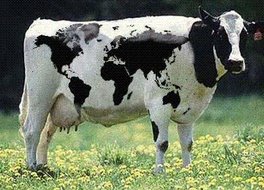One of the concepts I had never really considered before jumped out at me this time. (This is why I re-read books). In a conversation, the idea of separations becoming more evident, more distinct over time is posited.
. . . at a given point in its history you always find that there was a time before that point when there was more elbow room and contrasts weren't quite so sharp; and that there's going to be a time after that point when there is even less room for indecision and choices are even more momentous.And this has been recent news?!? The debate over the red/blue state divide is simply an extension of this concept, here mentioned in a novel copyright 1945. I guess this means that things are going to get worse, more divided, less co-operative. Hard thoughts for a fierce independent like myself to get a hold on. This indicates that my choices about who to vote for are 'more momentous' every year.
Then we come to my current workout book (being the book I read at the gym while on the machines). I picked it up at a used bookstore I like because the title looked to be on the lines of a current interest of mine, A Moral Mandate to Vote. I've been reading God's Politics with my Sunday School class, so I thought this would be a logical extension. A quick scan of the back seemed to concur: Social Security, war, helping the poor. I should have read more closely. As far as I can tell, the MD/author seems to think the only issue one should consider when voting is abortion. He spends the first 3-4 chapters (as far as I've gotten) explaining the dire importance of abortion being considered wrong. I can only suppose we'll go from there to the dire importance of something wrong being illegal, connecting us to the argument that abortion should be illegal. He hasn't sold me on that being the only platform that matters, though. Not yet. If he does, I'll be impressed.
I'm all for debate on abortion. I think it's a dangerous concept to have bouncing around in anybody's head, the idea that a fetus is basically a parasite. It resembles the (much less controversial or important) debate of what makes a flower a weed. (On this topic, by the way, Bush's veto of stem cell research funding is simply carrying his side of the argument to its logical conclusion, just like Singer's support of infanticide is on the other side. You can't fault them for that. Other things, maybe, but not their wholehearted support of one side of the debate. Which, I guess, is the point of this essay.)
But abortion being the only issue? The only issue? The author goes to great length to cite the number of Biblical references to God's care for life. I wonder if they outnumber the references to caring for the poor, or forgiving debts, or any number of possible criteria for choosing a candidate that he claims pale in comparison. Or even if we should rate the importance of an issue to God by the number of verses we can make relate to it.
I can't sharpen my political views to one talking point. I wouldn't want to. I have a mental list (abortion is on there, but so is war/peace, the poor, education, health care, international diplomacy, and any other number of things a politician might confront). I try to keep an open mind. I have voted both for and against candidates based on how they objectively measured up to that list. The 2-party system doesn't work for me. I don't want things to be divided more than they have to be.
But maybe that's Lewis' point. Maybe we've progressed to where this division has become essential. If that's the case, maybe I should move to England or Canada . . .

No comments:
Post a Comment